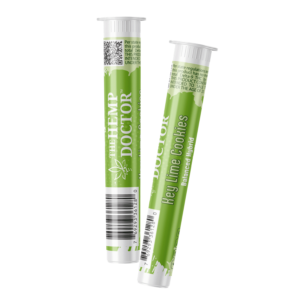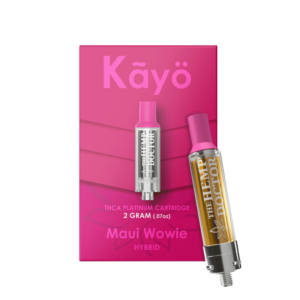Ohio became the 24th state to legalize adult-use marijuana on November 7, 2023, under Issue 2, also known as “Act to Control and Regulate Adult Use Cannabis.” Dispensaries finally began opening their door to adult-use cannabis consumers on August 6, 2024.
The Ohio Division of Cannabis Control (DCC) released its proposed rules governing the state’s marijuana license application process on January 29, 2024. In this blog, we’re breaking down DCC’s official recreational licensing application process for those wishing clarity in pursuing a recreational dispensary license online.
Medical Cannabis
Yes
Recreational Cannabis:
Yes
Hemp-Derived:
Yes
License Application:
Tentative
Understanding Ohio’s Dispensary Licensing Rules

DCC offers two main types of recreational dispensary licenses: the dual-use conversion license and the new 10(B) licenses.
The dual-use conversion license is for established medical marijuana dispensaries that want to sell recreational marijuana in the same business address. Securing this license means existing dispensaries can sell medical and recreational weed without opening a separate location. Converting to dual-use doesn’t incur added application licensing fees.
The new 10(B) license is for existing Ohio-based medical marijuana cultivators and dispensaries that wish to open an additional retail location for selling adult-use marijuana. Applying for a 10(B) license comes with a $5,000 fee. Those eligible to apply undergo a ranked lottery for site selection.
Ohio-based local governments can’t ban marijuana consumption and home cultivation or impose taxes on marijuana businesses. However, they can prohibit new adult-use dispensaries within their respective jurisdictions.
You may want to hold off searching for a physical location for your adult-use business in the following towns, as most of them are planning to ban the sale of recreational marijuana soon:
- Ashland
- Austintown Township
- Avon Lake
- Barberton
- Beachwood
- Beavercreek
- Bellefontaine
- Bellville
- Brunswick
- Carlisle
- Centerville
- Clayton
- Copley Township
- Eaton
- Fairfield
- Forest Park
- Franklin
- Granville Township
- Green
- Hamilton
- Hudson
- Kettering
- Kirtland
- Lakewood
- Lexington
- Lisbon
- Logan
- Madison Township
- Marysville
- Medina Township
- Miamisburg
- Monroe
- Napoleon
- New Franklin
- North Olmstead
- North Royalton
- Northfield
- Norton
- Obetz
- Ontario
- Orange
- Perrysburg
- Salem
- Shelby
- Springboro
- Strongsville
- Sycamore Township
- Trotwood
- Troy
- Vandalia
- Washington Township
- Waynesville
- West Carrollton
- West Chester Township
- Westlake
- Xenia
Step-By-Step Process for Acquiring A Dual-Use Conversion License in Ohio Online
If you’re a cannabis cultivator, processor, testing lab, or medical dispensary entity, you may apply to convert your medical marijuana facility license into “dual-use.”
After receipt of your application, DCC will review it to approve or deny it. Sometimes, DCC will advise you of any application deficiencies, which you must provide within ten business days to complete the application process.
To start the application process online, here’s what you should do.
Step 1: Gather And Prepare The Necessary Documents
Fill out the following documents:
Here are some things to remember in preparing the documents mentioned above:
- Complete each question in the fillable PDF document. Then, complete and sign the Dual-Use Applicant Attestation and Tax Authorization Form.
- The completed documents must be saved with the following file names:
- Fillable PDF application Document (Business Name – MMCP License Number – Dual-Use License Application)
- Dual-Use Applicant Attestation (Business Name – MMCP License Number – Dual-Use Application Attestation)
- Tax Authorization Form (Business Name – MMCP License Number – Dual-Use Application Tax Authorization Form)
- The signed Dual-Use Applicant Attestation and Tax Authorization Form needs to be scanned. Photographs of the documents aren’t acceptable.
- Additional information or documentation responding to either of these should be combined in a single file and attached to the appropriate document (Fillable PDF application Document, Dual-Use Applicant Attestation, or Tax Authorization Form). These attachments must be saved using the file name template (Business Name – MMCP License Number – Question Number).
- All three documents, along with their additional attachments, must be submitted together at the same time.
- Each facility license (i.e., cultivator, processor, etc.) has separate applications.
Step 2: Submit Your Application
There are two ways to submit your completed application and materials. Either one is considered legitimate.
Option 1: Email all three documents to [email protected] with the subject line “Business Name – MMCP License Number – Dual-Use Application.”
Option 2: Drop all three documents in the State of Ohio File Drop: https://filedrop.cloudfs.ohio.gov/. The recipient email should be addressed to [email protected].
After dropping all three attachments to the State of Ohio File Drop, email [email protected] with the subject line “Business Name – MMCP License Number – Dual-Use.”
Here are some things to remember when submitting the three documents:
- After submitting the form, you will receive a reply from [email protected]. If you can’t see the automatic reply, check the junk or spam folder.
- You must only submit the documents according to DCC’s two submission options.
- There is no submission deadline for a dual-use license application.
| 🗒️ Note After completing your application, you will be given a provisional license. This is found within your eLicense Account and is sent to your eLicense Account Administrators and Account Managers. A provisional license, however, is not a license to sell recreational cannabis. This license is your ticket for undergoing the DCC list of items to be met before the issuance of the Certificate of Operation. |
Step 3: Complying with the DDC List of Items
Ensure the following items are met before the issuance of the Certificate of Operation:
- Individual Badging and Background Checks
All individuals involved with the facility’s day-to-day operations must have an active employee badge beginning with “CCE” in DCC eLicense. Fingerprints are required of all individuals without an active employee badge.
- Point-of-Sale Updates
The dispensary must demonstrate, during a test sale of DCC, that their point-of-sale system is capable of all of the following:
- Correctly achieving a sale to a medical patient.
- Correctly achieving a sale to an adult-use consumer.
- Assessing the 10% adult-use excise tax on non-medical sales only.
- Printing receipts.
- Preventing sales that exceed eligible transaction limits.
- Following the requirements for accepting returns from both medical patients and non-medical consumers.
- Surveillance
You must comply with the DCC security and surveillance standards. The list of surveillance standards is available here: February 9, 2024, and March 6, 2024.
Email your questions and concerns about surveillance compliance to [email protected].
- Standard Operating Procedures
As part of the DCC review process, dispensaries must create procedures to ensure the following standard operating procedures (SOPs) are followed:
- Compliance with all point-of-sale requirements for medical and non-medical patients.
- Prevention of sales to persons under the age of 21 unless they qualify as medical marijuana patients.
- Visitor logs of visitors entering areas of the facility other than the public retail floor.
- Safe flow of traffic.
- Safe and efficient curbside pick-up and drive-through windows.
- Accommodating medical patients and caregivers, and non-medical consumers.
- Providing discounts under the law.
- Compliance & Inspections
- Any outstanding deficiencies and fees must be resolved.
- The renewal application must be submitted 30 days before the Certificate of Operation expiration date.
- Any outstanding tax must be resolved, and a tax review should be completed by the Department of Taxation.
- The applicant must comply with the requirements for financial responsibility.
- The dispensary’s point-of-sale system has to undergo system tests virtually or in person.
- A facility inspection has been carried out.
- Training
A dispensary must train its staff on all the applicable dual-use sales requirements. The training must be documented, including the training date, the names of employees trained, and the training description.
- DCC Meeting
The interest holders of the dual-use dispensaries must attend a meeting with the Division of Cannabis Control via Microsoft Teams or in person.
Step-By-Step Process for Acquiring A 10(B) license
Before we move on to the step-by-step process of applying for a 10(B) license, check your eligibility for acquiring this type of license below.
These businesses with the following cannabis license type and status are greenlighted for a 10(B) license application.
- Level I Medical Marijuana Cultivators: Entities with either a certificate of operation or provisional license may apply for three dispensary licenses per entity at designated locations.
- Level II Medical Marijuana Cultivators: Entities with either a certificate of operation or provisional license may apply for one dispensary license per entity at one location.
- Medical Marijuana Dispensaries: Dispensaries with either a certificate of operation or provisional license, without ownership or control with any cultivator or processor, may apply for one dispensary license per entity at one location.
Step 1: Gather and Prepare the Documents
To be considered, you must fill out completely the following required documents:
- PDF application document.
- 10(B) Applicant Attestation
- Tax Authorization Form
| 🗒️ Note To complete the application process, 10(B) applicants must pay the $5,000 application fee. This is non-refundable. |
Step 2: Submit the Documents
You may submit the completed documents in two ways (the same as the dual-use conversion application process). Either of the ways is considered legitimate:
Option 1: Attach the required documents to [email protected].
Option 2: Drop the files to the State of Ohio File Drop and email [email protected].
Step 3: The Application Review and Drawing Process
At this point, you don’t need to do anything. You just wait for the application review, drawing, and site-selection process to end. Here’s what the process looks like at DCC’s end.
Completed applications are entered into the Ohio Lottery Commission’s drawing process, which uses a Random Number Generator to assign rankings to applications. The results of the draw will be posted on DCC’s website.
Step 4: Submit A Facility Site Location Application
As for the site selection process, it consists of two phases.
Phase One: Applicants must submit a Facility Site Location Application identifying their three preferred sites. DCC will review these sites to ensure they aren’t located within one mile of existing dispensaries or other proposed sites.
You may be asked for another three sites if your initial sites weren’t approved.
Phase Two: The DCC establishes regional districts for site selection in Phase Two. Applicants who make it through phase two will submit a preference sheet ranking the proposed sites they indicated during phase one.
Step 5: Submit the Required Documents for Provisional Licensing
After the site selection, in 45 days, you need to demonstrate through supporting documents that:
- You own or have an active lease of the property
- There aren’t any local zoning restrictions violated by your picked location
- The site is not within 500 feet of prohibited facilities.
Step-By-Step Process of Establishing A Dispensary After Securing A Certificate of Operation
Now that you have the license to sell recreational marijuana, here are some steps you need to consider in establishing a recreational dispensary in Ohio.
Step 1: Creating a Solid Business Plan

A well-thought-out business plan is the foundation of any successful venture. This plan should include detailed financial projections, target cannabis market analysis, and a comprehensive marketing strategy. Your business plan is an internal document and a crucial part of your license application.
A key element of your business plan is identifying your target market. Conduct market research to understand your potential customers’ demographics, preferences, and behaviors. Knowing your audience will help you tailor your products and marketing strategies.
Another crucial component is your financial plan. This plan should detail your startup costs, operating expenses, and revenue projections. Proper budgeting can help ensure you’re prepared for these expenses and unforeseen costs.
Lastly, include a robust marketing strategy in your business plan. This should outline how you plan to attract and retain customers. Use digital marketing channels such as social media, email campaigns, and SEO to reach your target audience effectively.
You provide a comprehensive roadmap for your dispensary’s success by laying out these details in your business plan.
Step 2: Building Your Online Presence

An effective online presence is key to reaching a broader audience and driving sales. Your website should be user-friendly, SEO-optimized, and equipped with a secure e-commerce platform to facilitate online sales.
Start by creating a visually appealing and responsive website that offers easy navigation. Your website should be a virtual reflection of your physical store, showcasing your products, services, and brand story. Include detailed product descriptions, high-quality images, and customer reviews to build trust and enhance the shopping experience.
SEO optimization is crucial for driving organic traffic to your website. Use relevant keywords and regularly update your blog with informative and engaging posts about cannabis trends, product reviews, and industry news to attract and retain visitors.
Integrating a secure e-commerce platform is essential for facilitating online sales. Ensure your platform supports various payment methods, including credit cards and digital wallets, and complies with security standards to protect customer data.
Additionally, consider offering delivery services and curbside pickup to cater to different customer preferences during the initial launch and beyond.
Step 3: Setting Up Inventory and Supply Chains

Developing reliable supply chains for your products is vital. This ensures a steady inventory that meets customer demand. Partner with reputable suppliers, like The Hemp Doctor Wholesale, who can consistently provide quality products.
When selecting suppliers, consider product variety, pricing, reliability, and compliance with state regulations.
A robust inventory management system is crucial for tracking stock levels, sales, and customer preferences. Utilize software that integrates with your e-commerce platform to streamline operations and ensure you never run out of popular items. Regularly monitor your inventory to identify trends and adjust your stock accordingly.
Step 4: Developing a Marketing Strategy
A robust marketing strategy is essential for driving traffic to your online dispensary. Utilize social media platforms like Facebook, Instagram, and Twitter to engage with potential customers and build your brand. Share eye-catching visuals, informative content, and promotions to capture the interest of your target audience.
Email marketing is another effective tool for reaching your customers. Build a mailing list through your website and social media channels, and send regular newsletters with updates about new products, special offers, and industry news. Personalize your emails to increase engagement and encourage repeat purchases.
Online advertising, including Google Ads and social media ads, can help you reach a broader audience. Target your campaigns based on demographics, interests, and behaviors to ensure your ads are seen by those most likely to become customers. Regularly analyze your advertising performance and adjust your strategies to maximize ROI.
Content marketing is also crucial. Create a blog on your website and share valuable information about cannabis products, industry trends, and health benefits. This positions you as an authority in the market and improves your SEO, driving more organic traffic to your site.
Step 5: Ensuring Compliance and Security
Maintaining compliance with state regulations is ongoing. Regularly audit your operations to ensure they meet legal standards. This includes everything from product labeling and packaging to advertising and sales practices. Staying compliant helps you avoid fines and legal issues that could jeopardize your business.
Investing in cybersecurity measures is essential to protecting customer data and transactions on your website. To safeguard sensitive information, use secure payment gateways, SSL certificates, and strong encryption methods. Regularly update your software and train your staff on best practices to prevent security breaches.
In addition to cybersecurity, implement physical security measures for your dispensary. This includes surveillance cameras, alarm systems, and secure storage for inventory. Having a comprehensive security plan in place not only protects your assets but also builds trust with your customers.
Finally, stay informed about changes in state laws and industry regulations by joining industry groups, attending conferences, and engaging with other professionals.
Ready to Launch Your Ohio Online Dispensary?
Opening an online recreational dispensary in Ohio is an exciting venture. By following the right steps and staying compliant with state laws, you can create a successful business that serves your community and stands out in this competitive market.
A huge part of a recreational dispensary’s success is partnering with experienced brands with proven profitability in the competitive market of hemp-derived products. With over 15 years of industry experience, the Hemp Doctor Wholesale has been supplying dispensaries with 100% legal cannabis products across 50 states.
Schedule a free wholesale consultation with our friendly Clay Kramm and discover several ways to grow your business.
FAQs
What are the requirements to open a dispensary in Ohio?
You must prepare the Fillable PDF Application document, Applicant Attestation, and Tax Authorization Form for dual-use conversion and 10(B) license applications.
What state is it easiest to open a dispensary?
None. You must go through the rigorous process of applying for a dispensary license across all 50 states.
How much do dispensary owners make in Ohio?
Undisclosed, but US-based dispensary owners are reported to make between $100,000 and $500,000 annually.
How much is a growers license in Ohio?
Level I and Level II license application fees are $20,000 and $2,000, respectively.







